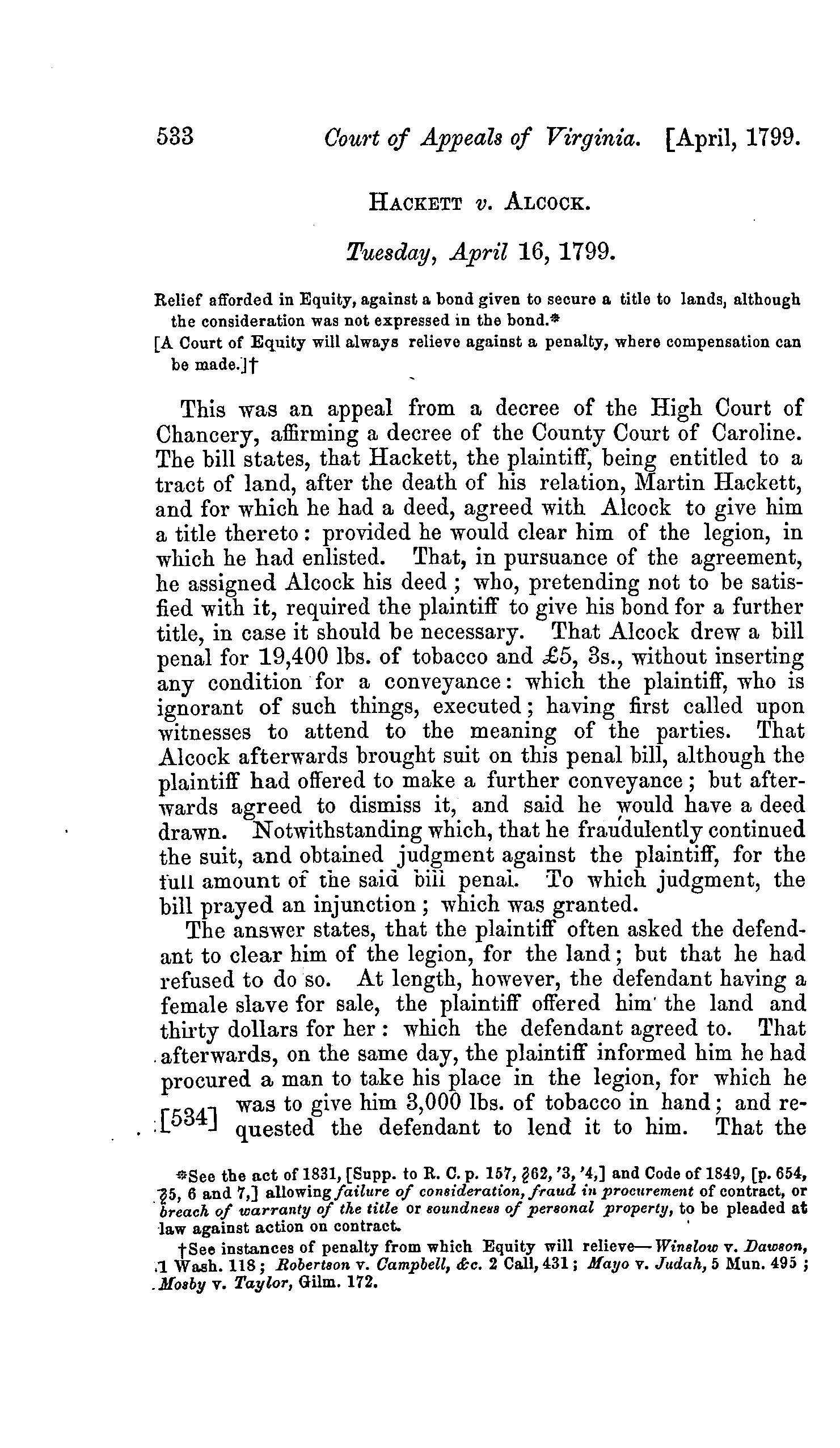Hackett v. Alcock

Hackett v. Alcock, 5 Va. (1 Call) 533 (1799),[1] was a case where the court determined whether a party can recover from a penalty contract when the other party agreed to comply with the original contract but the penalty contract had no conditions for conveyance.
Background
Hackett was entitled to a tract of land from his relative. When Hackett obtained the deed he agreed to give Alcock the property if he cleared Hackett from the military legion Hackett enlisted in. Alcock agreed but allegedly was not satisfied with the deed and told Hackett to give him another bond as well. Alcock then drafted a penalty bill for 19,400 lbs of tobacco and about £5 without including any conditions for the conveyance. Hackett, who allegedly did not know any better, agreed to the bill. Alcock then sued Hackett for the penalty bill even though Hackett agreed to give Alcock an additional conveyance. Alcock said that he would drop the suit but secretly continued it and received a judgment for Hackett’s failure to further convey property. Hackett is suing for an injunction against the penalty bill.
The Court's Decision
The County Court dissolved the injunction and dismissed the case. Chancellor Wythe affirmed the decree of the County Court of Caroline. The Court of Appeals reversed with costs and dissolved the injunction as to the 3,400 lbs of tobacco in interest.
See also
References
- ↑ Daniel Call, Reports of Cases Argued and Adjudged in the Court of Appeals of Virginia, 3rd ed, ed. Lucian Minor (Richmond: A. Morris, 1854), 1:533.